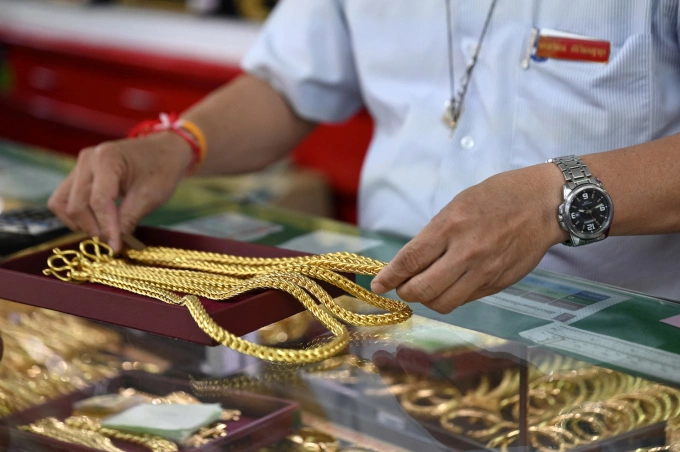The Bank of Thailand plans to tighten reporting requirements for gold transactions after rising bullion flows contributed to volatility in the baht.
Governor Vitai Ratanakorn said the central bank is revising rules to require more detailed reporting of gold trades, allowing regulators to better assess how cross-border settlements may be influencing the currency, as reported by Bloomberg.
 |
|
An employee handles gold jewelry for customers at Hua Seng Heng gold traders in Chinatown in Bangkok on April 9, 2025. Photo by AFP |
“Gold isn’t directly regulated in Thailand and it’s still being discussed who will be the regulator,” Vitai told reporters during the weekend.
“If exporters send gold to Cambodia and settle in cryptocurrencies – which I believe is true – we won’t see anything at all. So we need to move closer and see what we can do.”
Gold became a contentious issue earlier this year after the central bank identified it as one factor behind the baht’s sharp appreciation despite sluggish economic growth.
The currency reached a four-year high in September, hurting the competitiveness of exports and tourism, which together account for about 70% of Thailand’s gross domestic product.
The move is part of a broader effort by the Bank of Thailand to take a more hands-on approach and remain closely aligned with the real economy.
The governor said the central bank will rely on more targeted measures to address structural imbalances instead of broad monetary tools.
Earlier this month, the central bank also announced plans to tighten oversight of financial intermediaries and step up monitoring of suspicious money flows as part of a wider crackdown on financial risks.
In September, the Thai government said it was considering imposing a tax on physical gold trading to slow the rally of the baht.





